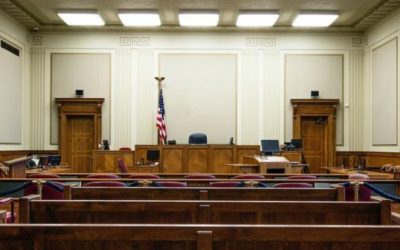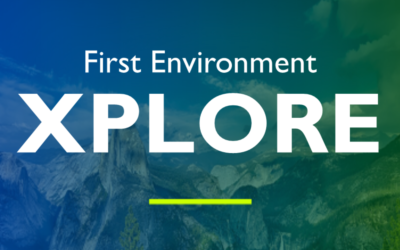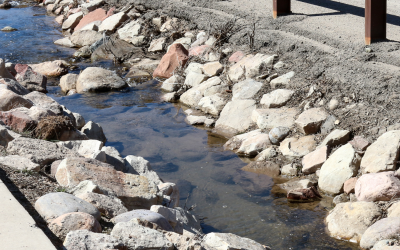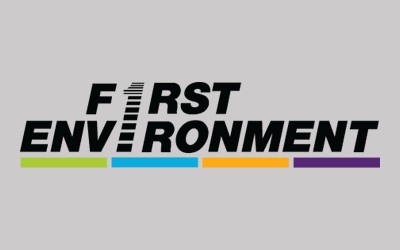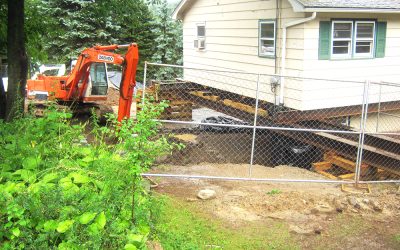Environmental Experts Make the Case: Tod Delaney Shares Highlights from 2016
 First Environment’s litigation team finished out another strong year of providing expert witness services and litigation support to law firms and clients across the country.
First Environment’s litigation team finished out another strong year of providing expert witness services and litigation support to law firms and clients across the country.
“We successfully worked with counsel and their clients to provide strategic, innovative litigation support on matters going to trial that hinged on number of key technical issues relating to the environment and environmental contamination,” Tod Delaney, PhD, PE, BCEE, First Environment’s president and primary expert stated in a recent interview at his office in New Jersey. “Our clients recognize that we’re adept at using our diverse real-world engineering experience and in-depth knowledge of historic industrial practices to provide our side with technical leverage they needed. The client knows and this industry knows that if they hire us, we will analyze the facts and data more thoroughly than most and develop the best possible legal strategy.”
He added, “My greatest sense of accomplishment is when I sense a light bulb going off in a judge’s or juror’s head during my testimony – it’s an ‘aha’ moment that I’m sure science teachers all over the world feel when a student finally ‘gets it’.”
Delaney also noted, “Clients know that we are unbending in applying our scientific know-how to solve complex problems.”
With diverse capabilities across many specialized and highly technical subject matters, First Environment has gained a reputation as the “go-to” firm for expert witness services in several key areas. The use, storage, handling, and disposal of chlorinated solvent contamination – including perchloroethylene (or PERC) and trichloroethylene (TCE) – has been one of our most successful areas of expertise. According to Delaney, “our understanding of how these solvents have been used and disposed of since they first came into use puts us in a unique class of experts. In particular, our deep understanding of historic vapor degreasing, dry cleaning, and cold degreasing operations, including the disposal end of the operation, sets us apart from other experts.”
Arthur Clarke is head of First Environment’s litigation group and an environmental lawyer and scientist by training and experience. “I’ve worked in the environmental industry for 33 years, and I never saw an engineering and consulting firm with the breadth of technical expertise as First Environment. It’s an absolute boost to a litigator to find so much technical expertise in one place.”
Clarke also commented on the source of First Environment’s clientele. “Our clients are organized by technical subject matter, not necessarily by location or industry type. We get them by word of mouth when lawyers ask their colleagues ‘who’s good at this?’ In a number of cases, we were so successful at explaining a complex technical situation that the opposition ended up retaining us for their next litigation involving the same subject matter.”
At the end of the day, our litigation team knows that it’s their job is to help explain complex environmental issues – such as historic contamination, comingled plumes, environmental fate and transport, and contaminant source identification – to the trier of fact. “We understand our role as an expert under the court rules to provide an objective, deconstructed, and understandable explanation of these complex issues to the court,” Delaney said. “So we use demonstratives, groundwater migration and degradation models, computerized graphics, and other tools to clarify often confusing technical issues. Our role is not only to present the technical issues but to simplify and explain them to non-technical people who may be sitting in the jury box, on the bench, or in a conference room.”
2017 looks to be another promising year for the team. Sites with emerging contaminants such as PFOA and PFOS will likely grow in number; cases involving contaminated sediments in waterways, ports, harbors, and bays and the attendant Natural Resource Damages claims will continue to make up the multi-party CERCLA litigation work; and groundwater fate and transport modeling will continue to be an important tool for locating and dating environmental contamination. “We are looking forward to 2017 and, although there will be many changes and challenges, we expect the laws that compensate parties for the cleanup of environmental contamination and protect them from human health and environmental damage will be as strong as ever,” Delaney said.
First Environment provides expert services on a wide variety of cases. Some recent examples of these are provided below.
CERCLA Cost Recovery & Contribution
|
State Law Cleanup Recovery & Contribution
|
|
Toxic Tort, Personal Injury, & Professional Liability
|
Insurance Recovery
|
|
Natural Resource Damages
|
RCRA Enforcement Litigation
|

Tod is the founder and president of First Environment, as well as a veteran of the U.S. Army. Since the firm’s inception he has provided direction, management, and technical oversight of the most complex project across all service areas. For First Environment’s litigation practice, he serves as an expert witness for natural resource damages cases, and has testified in more than 30 litigations involving the management, disposal, and handling of chemicals in the context of CERCLA, RCRA, state-law cleanup statutes, and toxic tort lawsuits. He has prepared expert opinions for clients in a number of states—including New Jersey, New York, California, Washington, New Mexico, Louisiana, Georgia, and Maryland—and has testified in both federal and state courts.
For First Environment’s work in the federal sector as a Service-Disabled Veteran-Owned Small Business, Tod provides senior level management and quality oversight of deliverables. As a chemical and environmental health engineer, he also reviews all designs of remedial systems for our site investigation and remediation projects. In the 1990s, Tod initiated the firm’s early involvement in climate change mitigation, participating in the development of standards as a technical expert and/or international coordinator for ISO 14064 parts 1 and 2, ISO 14065, ISO 14066, and ISO 14067 regarding greenhouse gas verification and carbon footprinting. His continued involvement in international standards for climate issues includes his role as the elected Chair of ISO’s Climate Change Coordinating Committee, formed in 2014 to support the development of standards and best practices for mitigation and adaptation worldwide. Tod continues to grow the diverse collection of service First Environment offers, branching out into emerging areas such as environmental product certifications, green/climate bonds, and renewable fuel certification

